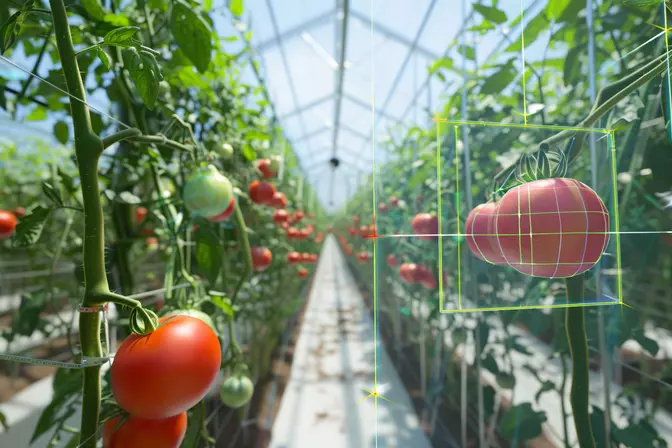
Artificial Intelligence (AI) is revolutionizing many sectors, and the agri-food industry is no exception. AI is bringing innovative solutions that are transforming every aspect of this industry, from agricultural production to the distribution of finished products. In this article, discover these new opportunities and innovative solutions to meet modern challenges.
1. AI for Precision Agriculture and Resource Optimization
One of the most promising applications of AI in the agri-food industry is precision agriculture. Thanks to IoT (Internet of Things) sensors and machine learning algorithms, farmers can collect and analyze real-time data on weather conditions, soil, crops, and livestock. This allows for more efficient crop management, optimization of resource use, and an increase in agricultural yields.
Farmers can thus optimize irrigation and fertilizer use more effectively. Sensors connected to AI algorithms monitor soil conditions, moisture levels, and nutrient needs of crops in real time. Based on this data, automated systems precisely adjust watering and fertilization, thus reducing resource wastage and improving agricultural yields.
2. Robotization of Recurrent Tasks
Robots equipped with sensors and AI systems are used in dairy and poultry farms to autonomously collect manure. These robots identify areas to be cleaned, avoid obstacles, and perform the work efficiently and hygienically. This automation reduces manual labor, improves working conditions, and contributes to the sustainable management of agricultural waste.
3. Plant and Disease Identification by AI
One of the most revolutionary advances of AI in the agri-food industry is its use for the rapid and accurate identification of plants and the diseases that affect them. This technology provides farmers with a powerful tool to diagnose crop health problems and take corrective actions proactively. They can also prevent the spread of diseases and pests by isolating infected areas.
AI-based mobile applications, coupled with image recognition algorithms, allow farmers to capture images of plants or leaves showing suspicious symptoms. These images are then analyzed by AI systems that compare visual characteristics with an extensive database of known plants and diseases.
4. Automation of Milking and Cow Health Monitoring
Robot milking systems equipped with AI offer significant benefits in terms of agricultural efficiency, animal welfare, and overall farm management. Milking robots use sensors and cameras to identify cows and correctly position the milking cups. AI allows the system to adapt to the individual variations of cows, ensuring efficient and comfortable milking.
Milking robots can also monitor cow health through integrated sensors. AI analyzes the collected data, detects early signs of diseases or health problems, and alerts farmers for quick intervention. The data collected thus allow farmers to better understand the behavior and individual needs of cows. This leads to more accurate feeding, optimal breeding management, and an overall increase in dairy production.
5. Computer Vision in the Pig Industry
The use of computer vision in pig farms allows for more precise management of animal reproduction. Cameras equipped with AI software can accurately detect visual signs indicating that pigs are pregnant. This technology reduces human errors, optimizes the breeding process, and improves the overall results of pig farming.
6. The Smart Supply Chain
AI is also revolutionizing supply chain management in the agri-food sector. AI-based systems are used to predict demand, optimize delivery routes, manage inventory, and reduce losses throughout the chain. These technologies enable a more agile and proactive approach to logistics, improving operational efficiency and reducing costs.
AI in the Agri-Food Industry: The Future
These concrete examples illustrate how AI is significantly transforming the agri-food industry by offering innovative and practical solutions. By adopting these technologies, industry players can improve their productivity, reduce their costs, minimize risks, and contribute to more sustainable and efficient agriculture. The future of the agri-food industry is undeniably shaped by AI advancements, offering immense potential for continuous growth and development in the sector.